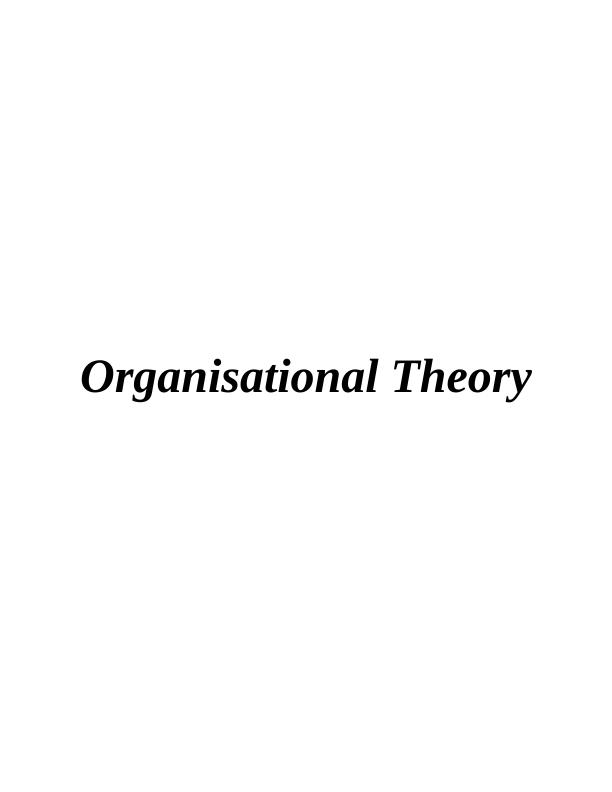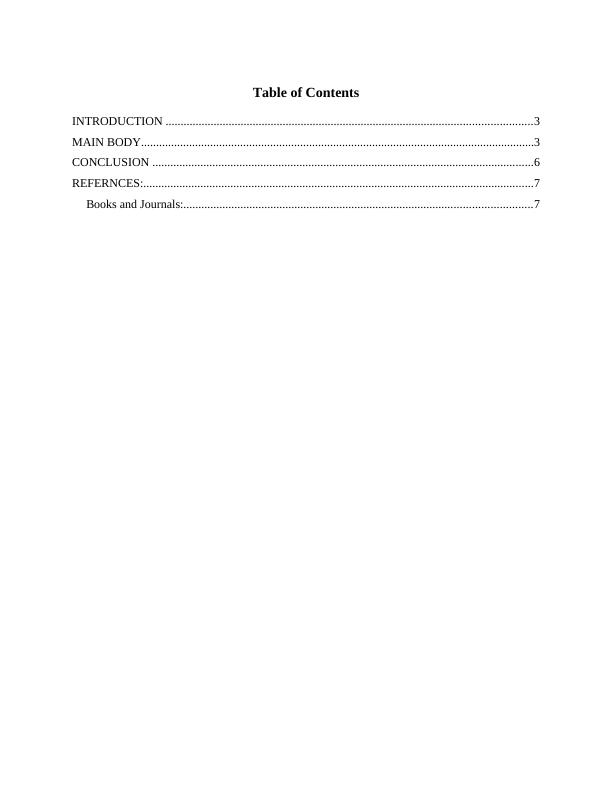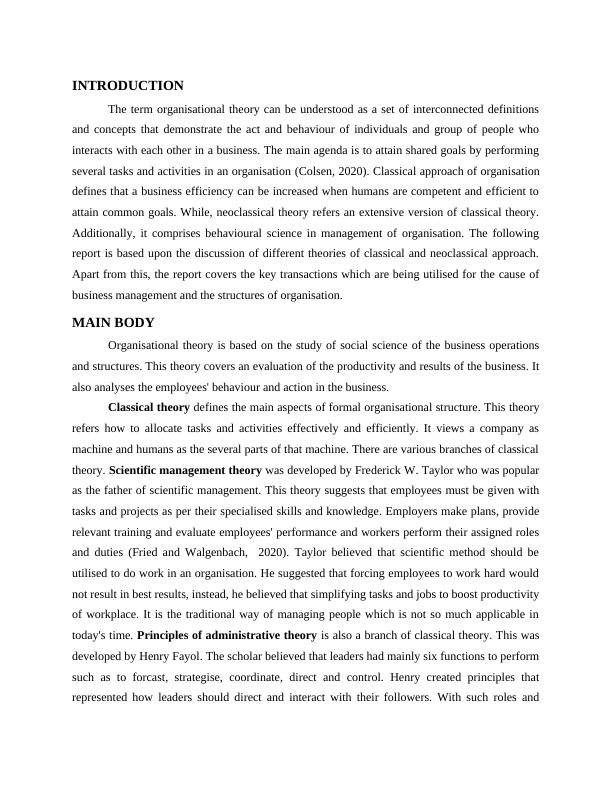Organisation Theory/ Classical and Neo-Classical Origins-Present
7 Pages2103 Words456 Views
Added on 2023-06-13
About This Document
This report discusses the classical and neoclassical theories of organisational management, including scientific management, principles of administrative theory, and bureaucratic theory. It also covers contemporary marketing orientations, culture excellence approach, Japanese approach of managing quality, and organisational learning.
Organisation Theory/ Classical and Neo-Classical Origins-Present
Added on 2023-06-13
ShareRelated Documents
End of preview
Want to access all the pages? Upload your documents or become a member.
Organisation Theory: Classical and Neoclassical Approaches
|10
|2451
|34
Classical and Scientific Management Theory
|11
|2574
|314
Organisation Theory: Classical and Neoclassical Approaches and Future Forces Shaping Organisational Structures
|10
|2763
|360
Organisation Theory: Classical and Neo-Classical Origins and Future Organisational Structures
|9
|2533
|81
Organisation Theory: Classical Approaches, Neoclassical Theory, and Forces Implementing Organisation Structure
|11
|2435
|1
Organisation Theory: Classical and Neo-classical Origins and Forces Shaping Organisational Structures
|10
|2567
|1



